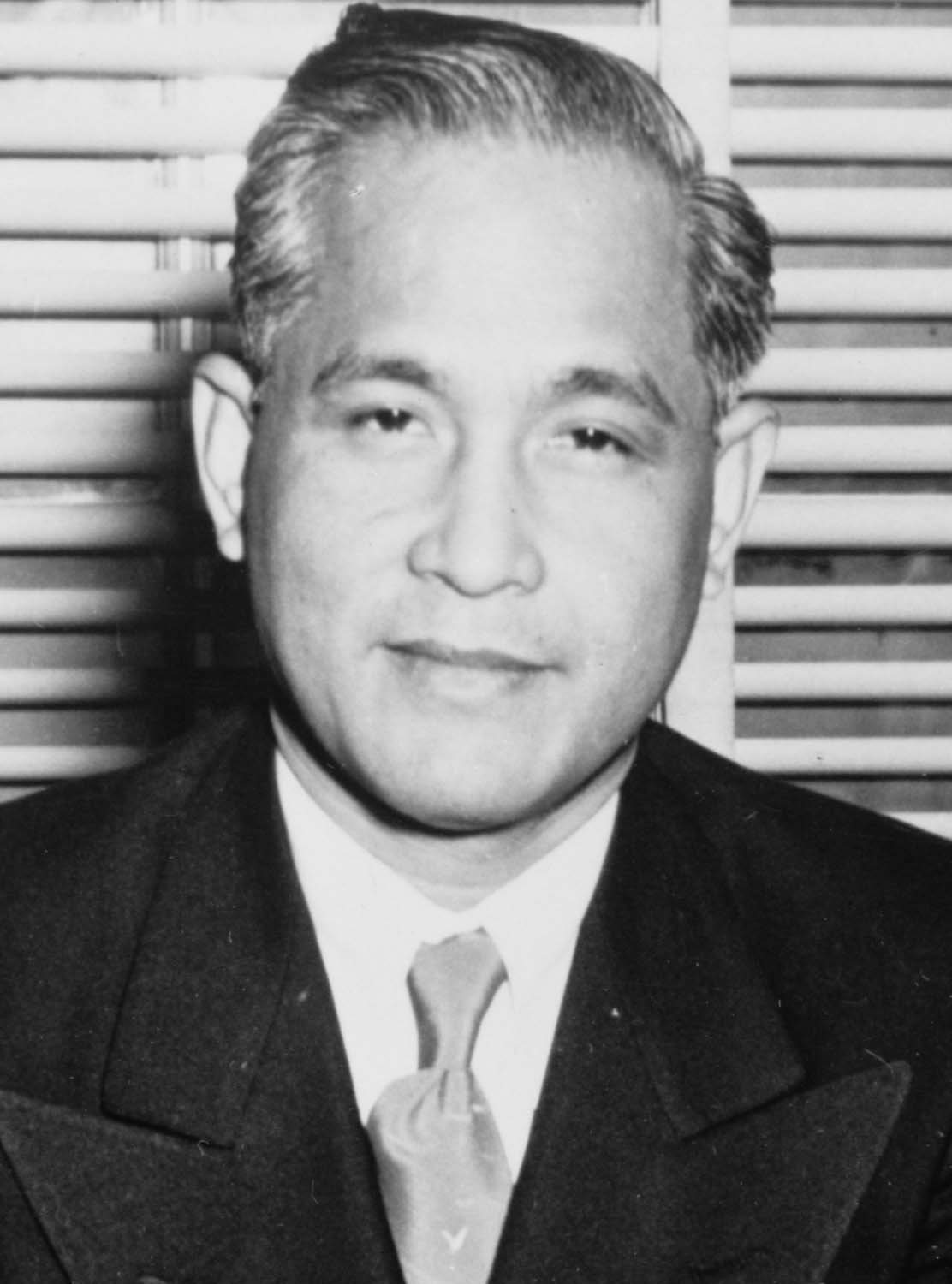Filipino First policy on:
[Wikipedia]
[Google]
[Amazon]
Filipino First () refers to a
 The policy of Garcia, was a response to the impact of
The policy of Garcia, was a response to the impact of
economic nationalist
Economic nationalism or nationalist economics is an ideology that prioritizes state intervention in the economy, including policies like domestic control and the use of tariffs and restrictions on labor, goods, and capital movement. The core bel ...
https://sinaunangpanahon.com/the-challenges-and-achievements-of-the-third-philippine-republic-1946-1972/ policy
Policy is a deliberate system of guidelines to guide decisions and achieve rational outcomes. A policy is a statement of intent and is implemented as a procedure or protocol. Policies are generally adopted by a governance body within an or ...
first introduced and implemented by the administration of then Philippine President
President most commonly refers to:
*President (corporate title)
* President (education), a leader of a college or university
*President (government title)
President may also refer to:
Arts and entertainment Film and television
*'' Præsident ...
Carlos P. Garcia. Under the policy, Filipino-owned business is prioritized over its foreign counterparts, and the patronizing of Filipino-made products by Filipinos was also promoted.
History
Under President Carlos P. Garcia
 The policy of Garcia, was a response to the impact of
The policy of Garcia, was a response to the impact of free trade
Free trade is a trade policy that does not restrict imports or exports. In government, free trade is predominantly advocated by political parties that hold Economic liberalism, economically liberal positions, while economic nationalist politica ...
and American economic dominance in the Philippines for years following the World War II
World War II or the Second World War (1 September 1939 – 2 September 1945) was a World war, global conflict between two coalitions: the Allies of World War II, Allies and the Axis powers. World War II by country, Nearly all of the wo ...
. It is meant to assert greater Filipino role over the country's economy if not to gain control of it by promoting "Filipino business establishment".
Garcia first instituted the policy with the issuance of Resolution No. 202 of the National Economic Council on August 28, 1958. The policy dictates that Filipinos would have preference over non-Filipinos in receiving foreign exchange. In line with the policy, Garcia pledged that his administration would assist Filipino entrepreneurs to make ventures in industries dominated by non-Filipinos.
The policy received positive reception from Filipino businessmen, and there were calls to expand the scope of the policy to include other spheres of society such as education.
However, it received negative reception from foreign
Foreign may refer to:
Government
* Foreign policy, how a country interacts with other countries
* Ministry of Foreign Affairs, in many countries
** Foreign Office, a department of the UK government
** Foreign office and foreign minister
* United S ...
and/or non-native businessmen, particularly the Americans
Americans are the Citizenship of the United States, citizens and United States nationality law, nationals of the United States, United States of America.; ; Law of the United States, U.S. federal law does not equate nationality with Race (hu ...
, Chinese, along with their Chinese Filipino
Chinese Filipinos (sometimes referred as Filipino Chinese or Chinoy/Tsinoy in the Philippines) are Filipinos of Chinese descent with ancestry mainly from Fujian, but are typically born and raised in the Philippines. Chinese Filipinos are one ...
counterparts. Chinese Filipinos
Chinese Filipinos (sometimes referred as Filipino Chinese or Chinoy/Tsinoy in the Philippines) are Filipinos of Chinese descent with ancestry mainly from Fujian, but are typically born and raised in the Philippines. Chinese Filipinos are one ...
in particular accused the policy of discrimination over its interpretation of who is a "Filipino" and felt marginalized by the policy. The opposition branded the policy as a political propaganda meant to win support from the public to secure Garcia's reelection as President in the next elections. Critics has also labeled the policy as being "anti-foreign"
Garcia in response to his critics said that his policy was not meant to foster Filipino "exclusiveness" or was meant to be "anti-foreign" and stated that the Philippines will not close itself to foreign capital. He asserts that the policy is meant to give Filipinos priority in relation to the control over the country's basic industries and their development.
1987 Constitution
The Filipino First policy may also refer to a set of provisions found in the 1987Constitution of the Philippines
The Constitution of the Philippines (Filipino language, Filipino: ''Saligang Batas ng Pilipinas'' or ''Konstitusyon ng Pilipinas'') is the Constitution, supreme law of the Philippines. Its final draft was completed by the Philippine Constitution ...
which gives Filipinos preferential treatment in the national economy over foreigners.
References
{{reflist Economic policy in Asia Economic history of the Philippines Protectionism Presidency of Carlos P. Garcia Aftermath of World War II in the Philippines